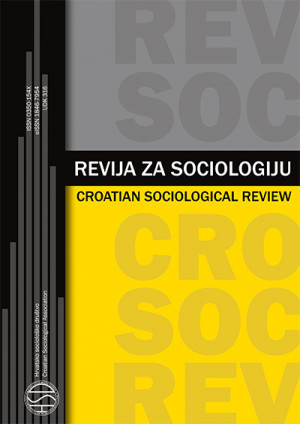Kako su odrastale europske generacije? Demografski i socioekonomski događaji povezani s tranzicijom u odraslu dob u Europi
European Generations Growing Up: Demographic and Socioeconomic Events That Constitute the Transition to Adulthood in Europe
Author(s): Ivan Čipin, Petra MeđimurecSubject(s): Sociology, Demography and human biology
Published by: Hrvatsko sociološko društvo
Keywords: transition to adulthood; cross-generational differences; comparative analysis; European Social Survey;
Summary/Abstract: Using data for 29 countries from round 9 of the European Social Survey, this study investigates generational differences in transitioning to adulthood in Europe. We focus on major life events that make up the transition to adulthood; we describe separately by gender how the patterns of entering the labour market, leaving the parental home, entering a first cohabitation, first marriage formation and becoming a parent differ across generations and European regions. The results show that the patterns of transition to adulthood differ between the Silent Generation (born between 1928 and 1945), Baby Boomers (born between 1946 and 1964), Generation X (born between 1965 and 1980) and Millennials (born between 1981 and 1996), and that the crossgenerational differences in the transition to adulthood vary across the seven European regions considered. First parenthood is associated with other life events within the transition to adulthood, while cohabitation and marriage are the strongest predictors of having a first child. The relationship between first parenthood and other life events that mark the transition to adulthood varies across generations and European regions. The findings point to the importance of socioeconomic, institutional, and normative factors in explaining the different pathways to adulthood. Furthermore, our inclusion of former socialist countries into the analysis, which was rarely done in previous research, contributes to the understanding of the validity of theoretical paradigms on the transition of youth to adulthood in a wider European macro-context. At the same time, the study also reveals the complexities of these transitions in light of their differences across European regions.
Journal: Revija za sociologiju
- Issue Year: 51/2021
- Issue No: 3
- Page Range: 461-493
- Page Count: 34
- Language: Croatian

